TOMAS DVORAK talks Floex, Samorost 3 and Machinarium.
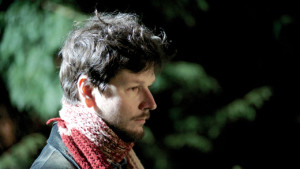 Tomas Dvorak is a musician, composer and multimedia artist. His soundtrack for videogame Machinarium is his most recognized project to date, but he’s also been making waves with his band Floex, as well as the BBC and Discovery Channel reporting on his multimedia project Archifon.
Tomas Dvorak is a musician, composer and multimedia artist. His soundtrack for videogame Machinarium is his most recognized project to date, but he’s also been making waves with his band Floex, as well as the BBC and Discovery Channel reporting on his multimedia project Archifon.
Machinarium was a hit. It’s an award-winning game and many critics attributed its ‘elegant’ and ‘Pixar’-like qualities with the soundtrack in mind. The games success has left a huge impact on its composer, “it influenced both my career and me, musically. I stopped being afraid—I was always trying to solve problems with my music beforehand” says Tomas.
He’s a likeable guy. Smart and sharp-witted with his feet firmly on the ground—he’s even humble in retrospect of Machinarium. “It [Machinarium] was massive. Many people played it—maybe millions of people. I was really surprised when I received many, many mails from different people. I was like… what?!”
Amanita Design, (the company behind Machinarium) has confirmed that one of its older games, Samorost 2, is to be followed up by a third, Sam0rost 3. Though little has been revealed, the game is said to be in the same style as Samorost 2 and Machinarium, a puzzle point and click adventure game.
Dvorak has been booked to compose the Samorost 3 soundtrack, “I dare say it’s really beautiful. I’m excited about it,” he says. It’s been dominating his time so much that it’s been “almost impossible to perform” with his band and work in the studio all at once.
The soundtrack for Samorost 3 is to be fragmented—meaning that parts of the soundtrack are likely to go in different directions than the other parts. The game is to have different planets and these different planets, in Dvorak’s words, “have different needs.”
Tomas is experimenting with a new approach for Samorost 3. He’s attempting to include sampled and live recordings in the soundtrack. “Originally the intention was to work in a traditional way, by writing the score for a small ensemble. Then we’d develop the music electronically. But by doing this we found out that it didn’t work for the atmosphere of the game. Now, I’m producing the music in a more experimental style,” he says. “The good thing about this project is that there are separate parts in the game—the different planets. So, I can approach different planets with different concepts.”
His soundtracks haven’t only been the paths to musical success. Dvorak’s solo project which is now a four-piece band, Floex, were recently in touch with electronic jazz group Hidden Orchestra. Joe Acheson, Hidden Orchestra’s linchpin, has been working with Floex, inviting them to gigs and forwarding their material to record labels. “We became friends quickly,” says Tomas. “The game [Machinarium] wasn’t the only thing that helped get me out of the shell… which is a good sign.”
Floex resemble the conventions of a typical electro four-piece but almost every member has at least two or three tasks to do when performing. It’s backed up with complex music. Described as ‘electro-nu-jazz,’ it is as sophisticated as any jazz quartet, needing a high class of musicianship to pull off live.
“I’m really looking in my music for something real or more deep. For me, the emotions are still the most important message of the music. I’m just trying to express emotions that are more serious… really real.”
Putting the band together was a challenge. “I didn’t put people together spontaneously. I have a friend who worked with me previously, he had really good contacts and he gave me a tip for a clarinetist. She [the clarinetist] wasn’t interested, but it was through her friends that I discovered a guy who I saw at a clarinet workshop. I really liked how he played, so we got him,” said Tomas. “For the drummer, I auditioned many and I found our singer, Sara [Vondraskova] gigging in a small café in Prague—I’d been looking to find a vocalist for almost a year beforehand. If I know what I’m looking for it comes.”
Floex have been around for quite sometime. Their debut Pocustone was released twelve years ago, in 2001. It impressed, received an Angel Award (the Czech version of the Grammys) and became a blueprint for Dvorak’s early soundtracks, “I was contacted to do some work for Amanita after they heard Pocustone” says Tomas.
Zorya, Floex’s second full-length album was released ten years later and is remarkably different than its previous entry. Zorya is an energetic album, often understated and breezy. The record is full of rich composition, but of a refined nature, catering to a wider audience. This time Tomas picked up two Angel Awards.
Yet Zorya was born out of a tension between its engineer and Dvorak—the classic scenario of pragmatist versus dreamer. Tomas explains, “we are a bit Yin and Yang [my sound engineer and I]. He’s rational and very technical. He can analyse things very precisely. I am very emotional and musical. So, when we work together we just have to bond our energy… sometimes when this happens, the energy’s great. But sometimes, the bond is hard.”
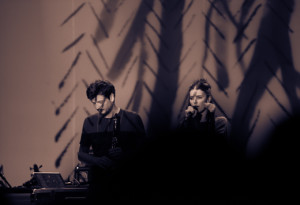 In August (2013) Floex released an EP called Gone, and it’s the sort of material Dvorak’s avoided composing thus far—“simple” are his own words. He’s crafting music with a dedicated vocalist, creating a much more conventional sound. Less playful and more focused.
In August (2013) Floex released an EP called Gone, and it’s the sort of material Dvorak’s avoided composing thus far—“simple” are his own words. He’s crafting music with a dedicated vocalist, creating a much more conventional sound. Less playful and more focused.
Tomas avoids the distinction of Gone’s material moving in a new direction though, “it’s kind of like finishing part of Zorya and maybe a reflection of our live performing. Performing has definitely had an affect. I think any new material will have to be much different than Zorya or Gone,” he says.
There are two videos that accompany the EP’s release—”Gone” and “Veronika’s Dream”—and they are definitely new territory for Tomas. This is the first time that he’s had professional video shoots to riff along with his music, “they’re a very important part of this EP—they’re the focus,” he said.
Both videos are complicated stuff, though Tomas hints that the process of making them was simple, “this project really attracted nice people, you know—it had beautiful energy. Usually there is lots of ego in the group, but here, we were all pulling together and being open,” he says.
The video for “Gone” was directed by Floex’s lyricist, Andrea Stuart, with Tomas taking a back seat, “I was more of a consultant on this one… this video is really her project. Andrea already had a really nice concept—she’s a very creative person.”
“Gone” is a dark piece of music, philosophical and serious in tone, and its video reflects this. It has a washed out grey palette accompanying the lyrics, which gloomily ask ‘where have you gone?’ “There’s a connection with the apocalypse in the video” explains Tomas. “She [Andrea Stuart] got a book for her birthday, which is about tapestries from a monastery not so far from Paris. She choose several images from those tapestries and converted them into modern scenes for the video shoot.”
The video for “Veronika’s Dream” is a cinematic piece that even plays like art cinema. The actors wear odd-looking costumes with gnarled masks, and are beautifully colorful and monstrous at the same time. Tomas was heavily involved in making this video, along with a bigger production team and director Tomas Hajek behind it. He laughs, “all the crazy things when I’m involved…”
“Veronika’s Dream” is full of metaphorical images—driven by suggestion over narrative. It begins with a woman being hunted by a wolf and ends with that woman preparing for a game of floorball.
“For these images to work there has to be some story and meaning behind it. First you see fear, then you’re fighting it and then you can destroy it. This is the metaphor that’s there,” says Tomas.
It’s easy to bring your own meaning to the video—the images are too esoteric to grab Dvorak’s definition right away, “of course, everybody can find their own [meaning].”
Likewise his music can be too enigmatic for explanation, ‘feeling it’ is often so much easier. Tomas reflects, “I’m really looking in my music for something real or more deep. For me, the emotions are still the most important message of the music. I’m just trying to express emotions that are more serious… really real.”
Dvorak tells of “thinking in melodies since his childhood” that’s stayed with him during his career. You can hear this through the different tones and colours of his work. His sound shines so brightly on its own – sometimes it’s the videogames that are playing Tomas Dvorak.






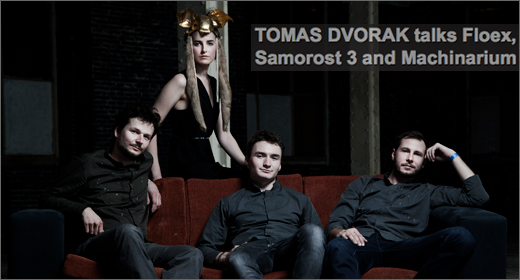




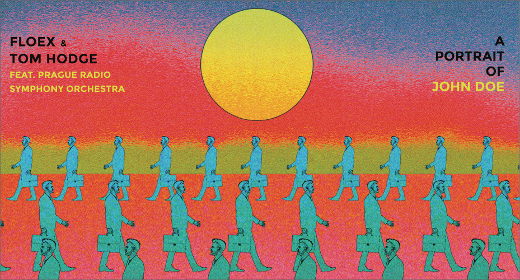
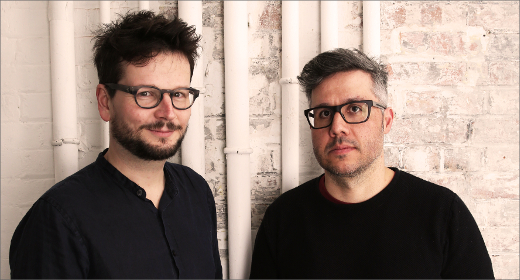

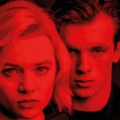
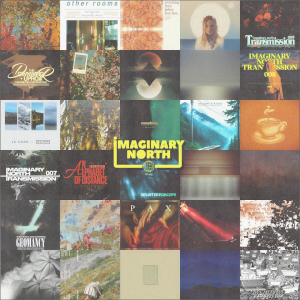

![Romanowitch :: A critical season substitute (glitch.cool) — [concise]](https://igloomag.com/wp/wp-content/uploads/2025/03/romanowitch-a-critical-season-substitute_tape_feat-75x75.jpg)








